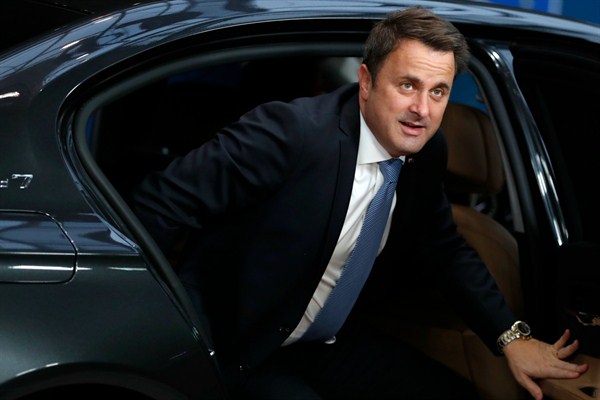The leader of Luxembourg’s coalition government, Prime Minister Xavier Bettel, was sworn in for a second term last week after a surprise election victory in October. He will now seek to further implement an ambitious policy agenda that includes free public transportation and an emissions-free economy by 2030, even as doubts persist about how these projects will be financed. In an interview, Anna-Lena Högenauer, a political scientist at the University of Luxembourg, discusses the election results, what we might expect from Bettel’s second term, and Luxembourg’s shifting position within the European Union.
World Politics Review: What are the primary factors that allowed Xavier Bettel’s coalition to secure a second term in office in the October elections?
Anna-Lena Högenauer: The parliamentary elections in October had a complex outcome. On one hand, the left-leaning coalition comprising Xavier Bettel’s Democratic Party (DP), the Luxembourg Socialist Workers’ Party (LSAP) and The Greens managed to slightly increase their total share of the vote over the main opposition Christian Social People’s Party, or CSV. On the other hand, two of the three coalition partners, the DP and the LSAP, both lost votes, and the coalition lost one seat in Luxembourg’s 60-seat legislature, leaving it with a razor-thin 31-29 majority. The DP and LSAP’s underperformance allowed the Pirate Party to enter parliament for the first time, with 6.5 percent of the vote.

